Little Opera, Family, Immigration & the Power of Music
Along with their suitcases, immigrants in the 1900's brought to America a passion for Opera, and this helped them adjust in a new country but also to introduce this special art form in a foreign place.
This is the premise of Little Opera, a charming documentary by French director Louis Wallecan produced by Bel Air Media and France Television. The US premiere of the 55 min. film, held at the Di Menna Performing Arts Center, was followed by a round table discussion featuring conductor and artistic director of New York Grand Opera, Vincent La Selva, editor in chief of Opera News, F. Paul Driscoll, opera director, Thaddeus Stressberger, film director, Louis Wallecan and Midge Woolsey, WQXR midday host. The program included Neapolitan musical interludes by acclaimed tenor Luigi Boccia, who was also featured in the documentary, and pianist Dan Saunders. The juxtaposition of film, conversation, song, and interpretive readings made for an unexpected, considered, and intellectually stimulating evening.
Little Opera “is the tale of the voyage from Sicily to New York of four renowned families for whom opera has always been a source of pride and an essential component of their cultural heritage. In this documentary the Coppolas, Alagnas, Marianis and Amatos speak of the way opera intertwined with their journey, giving a fascinating account of the story of many Italians in New York throughout the early 20th century. This film's subject has three universal themes: family, immigration and the power of music.
“I grew up in France,” the film's director said at the screening, “and I was surrounded by Italian music and the influence of Italian culture was pretty strong. At first I was really interested in Giuseppe Verdi, the subject of my first film, and then I wanted to work on something that portrayed the influence of music and Italy on people's lives. In this film I show how culture helped immigrants build their own identity in a foreign country, a country where they could somehow feel at home if they brought back something from home with them.”
“Opera has always been a source of pride for Italians living abroad,” tenor Luigi Boccia said to i-Italy, “Many always have considered Opera the most complex art form because of the combination of music, history, language, singing, acting, dancing, scenes, costumes etc. It always has been refreshing for immigrants of the first migratory wave, often labeled as simple and uneducated, to refer to Opera as a manifestation of what their native country has been able to produce over the centuries in the artistic field.
Furthermore, especially at the turn of the 20th century, Opera had a much broader popular appeal, and the audience was much larger than it is these days. The fact the most of the best singers in the world were Italian or had to sing in Italian was again another 'little moral revenge' for millions of immigrants making their way up the ladder in foreign countries. Artists like Enrico Caruso, who reached a level of world-wide fame and success that has been equaled in modern days only by a fellow Italian, Luciano Pavarotti, were considered national heroes. I recall a conversation with Maestro Coppola where he recounted his trips to the MET with his uncle Mario, a barber from Brooklyn. Sometimes - Coppola recalls - people would make discriminatory comments about Italians or Italian-Americans, and they would hear a reply to their comments: "We have Caruso, who do you have?" I always thought that this punchline summarizes better than 10 books how much Opera meant and means to Italians and Italians abroad and how this art form is engrained in our flesh, blood and way of living our lives. In my personal opinion, there is no art form that has shaped more decisively the cultural identity of Italian communities abroad than Opera, at least for the first half of the 21st century.” Tenor Luigi Boccia hails from Serino, Italy, and began his vocal studies with legendary tenor Gianni Raimondi. He recently completed his artist-in-residence at the Academy of Vocal Arts in Philadelphia. The recepient of several prestigious awards, Luigi as a versatile recitalist at home in repertoire ranging from florid Handel arias to the romantic outpourings of Italian and Neapolitan songs.
“Played on gramophones throughout the urban working-class areas of the City, the melodies of La Traviata, I Pagliacci, Cavalleria Rusticana and the legendary voice of Enrico Caruso carried the fragrance of Italy into their homes of Italian-American immigrants. In a country where Italian was forbidden in school, Opera was the art form that brought this displaced community together, through its stories, imagery, and melodies, allowing Italy's glorious past to be celebrated and dreamed through its song.”
“When I was nine years old, I heard for the first time Vesti la Giubba from I Pagliacci,” Tony Amato, founder and artistic director of Amato Opera Theater said in the documentary, “that's when I realized I wanted Opera to be in my life.” Anthony Amato was born in 1920 in Minori, Campania, immigrated to the US when he was a small child and met his future wife, Sally Amato, while performing in a musical comedy production at the Papermill Playhouse in New Jersey. Together, in 1948, they opened the Amato Opera Theater “with two goals in mind: to perform entertaining opera at a reasonable price; and to give promising singers experience with full-length productions. From artistic director, to conductor, to performing in their own productions, through the years Tony and Sally wore numerous hats to keep the show on the road, or at least in the theater.” (www.pbs.org)
“When I was about nine,” Maestro Anton Coppola said in the documentary, “I heard Faust and that's when I knew I wanted to be involved with Opera.” A celebrated conductor and composer, Maestro Coppola, among other things, has composed Sacco and Vanzetti, an opera in both Italian and English about immigrants Sacco and Vanzetti, has worked as the musical director of six Broadway musicals and conducted two film scores, 1992's The Godfather Part III and 1992's Dracula (Francis Ford Coppola is a member of the family). He appeared in the former, shown conducting Cavalleria Rusticana in the Teatro Massimo of Palermo.
“I was born on Mott Street,” Lorenzo Mariani, then artistic director of the Teatro Massimo of Palermo, “and I was the typical Italian-American kid growing up. I lived above a restaurant and Franco Corelli and other singers would stop there and sing for hours... every night. That's when I decided music was going to be in my life.”
Tenor Roberto Alagna's love story with Opera started at a really young age too, not in the States directly for him but for his family. “Influenced primarily by the films of Mario Lanza, but also from recordings of many historic tenors, he then switched to opera, but remained largely self-taught.” In recent years Alagna has been an advocate of restoring to prominence neglected French operas. Alagna is portrayed giving a really touching interpretation of Vesti La Giubba in Little Opera, that touched the audience viscerally. Vesti La Giubba is the conclusion of the opera's first act, when Canio discovers his wife's infidelity, but must nevertheless prepare for his performance as clown because the show must go on. “I really relate to the character,” Alagna says, “because when you do this job, no matter how you feel, no matter what has just happened to you, you must walk on that stage and perform.”
Everyone in the audience, including Maestro Anton Coppola himself, felt privileged to be part of such an exclusive event. “On Jan. 30th at the Di Menna Center, except for Amato's absence who died a few years ago,” Luigi Boccia concludes, “if felt like a reunion of friends who worked with passion and enthusiasm on a project that turned out to be very fruitful for the Italian-American Community and for Italian Opera lovers.”
And there could be a Little Opera follow up, as some reputable cultural institutions have expressed interest last night in repeating the same format at different venues in NY and other places in the U.S.






























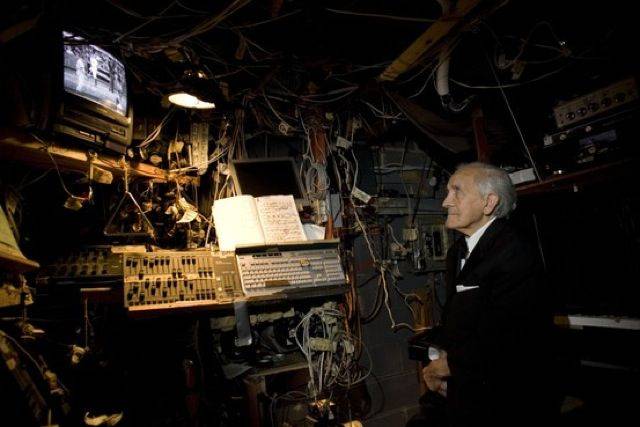
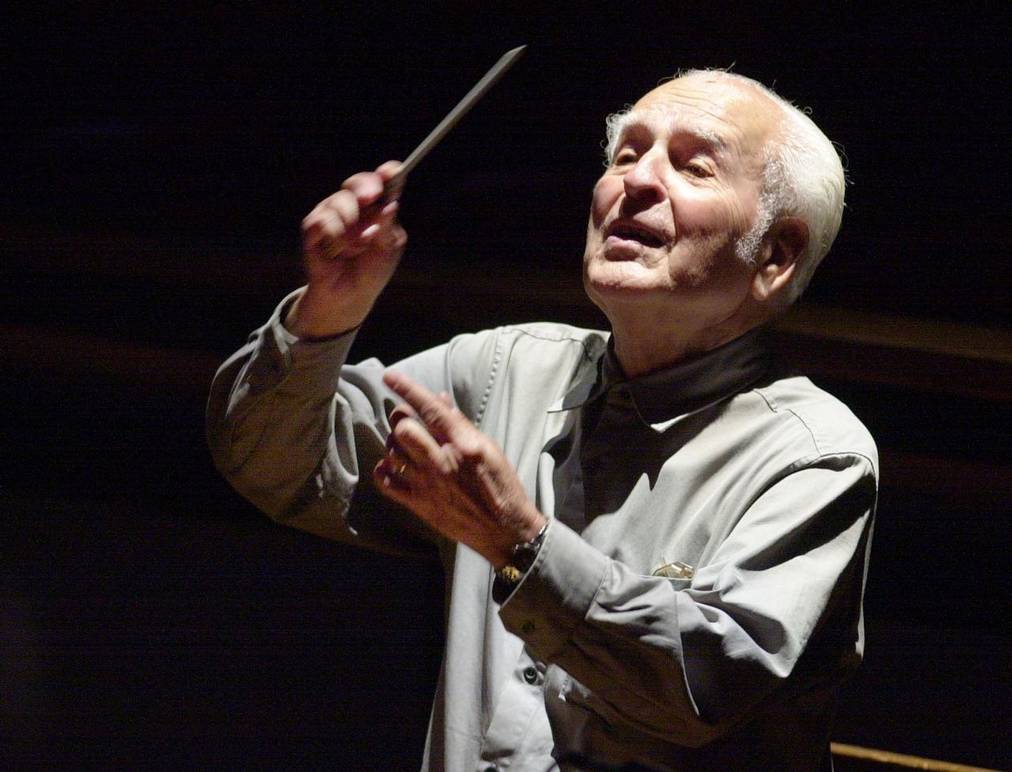
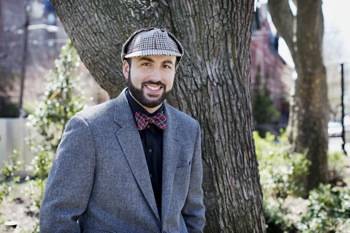
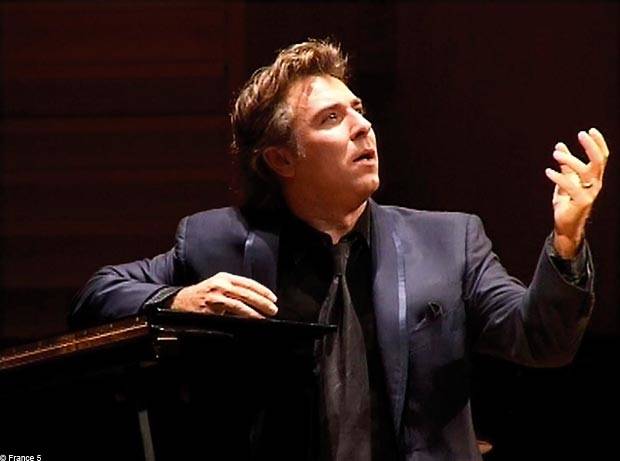
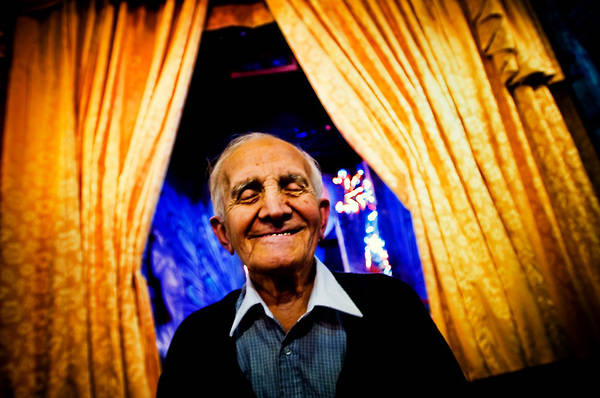



i-Italy
Facebook
Google+
This work may not be reproduced, in whole or in part, without prior written permission.
Questo lavoro non può essere riprodotto, in tutto o in parte, senza permesso scritto.